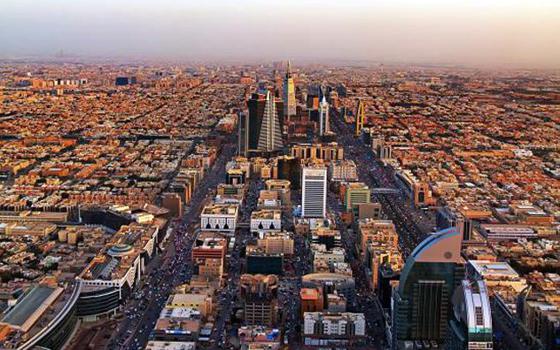Saudi Arabia has the biggest slice of unawarded projects worth $250 billion across the entire Gulf Cooperation Council (GCC), according to a report released by MEED.
The projects that are yet to have their main construction contracts awarded, account for 39 percent of the GCC market. And the Kingdom hopes the projects will help provide a much-needed jumpstart to the economy.
The Kingdom’s energy sector accounts for 33 percent of the total, worth $82 billion, while the construction sector claims the second-biggest segment at 29 percent, with the transport sector third at 27 percent, according to information from the database MEED Projects.
After a year of uncertainty in 2016 as Riyadh formulated its response to lower oil prices, the 225-page Saudi Arabia 2017: Delivering Vision 2030 report said that 2017 will be the year the Kingdom starts to deliver on its promises.
With the blueprint drawn up for economic transformation in its Vision 2030 document, Riyadh is now setting about implementing the reforms to reposition the country, so it can contend in the low oil price era.
According to the report, one of the first major steps has been the establishment of the National Center for Privatization to plan and oversee the procurement of public-private partnerships (PPPs) and other private sector initiatives.
Four PPPs have already been awarded this year to develop airport projects at Yanbu, Taif, Qassim and Hail. Saudi Arabia wants to privatize the operations of all airports by 2020. Advisers have also been enlisted to develop plans to engage private investors in other sectors such as health care.
The Ministry of Health is currently seeking advisers to help it draft a framework to build about 3,000 mega and primary medical centers with the participation of the private sector.
Richard Thompson, MEED editorial director, said the report confirmed that despite the challenges over the past two years, caused by falling oil prices “Saudi Arabia continues to be the biggest and most important market in the region.”
He added: “Anybody serious about growing their business in the region needs to understand the fundamental changes taking place in the Kingdom… In particular, it is vital to understand how Riyadh will implement its plans to increase private sector participation in the implementation of its strategic plans.”
In early February, the Ministry of Energy, Industry and Mineral Resources announced it was establishing the Renewable Energy Project Development Office (Repdo) to head the National Renewable Energy Program (NREP). The same month, Repdo issued prequalification documents for the first 700 megawatts (MW) of solar schemes.
Arab News
19 June
























































